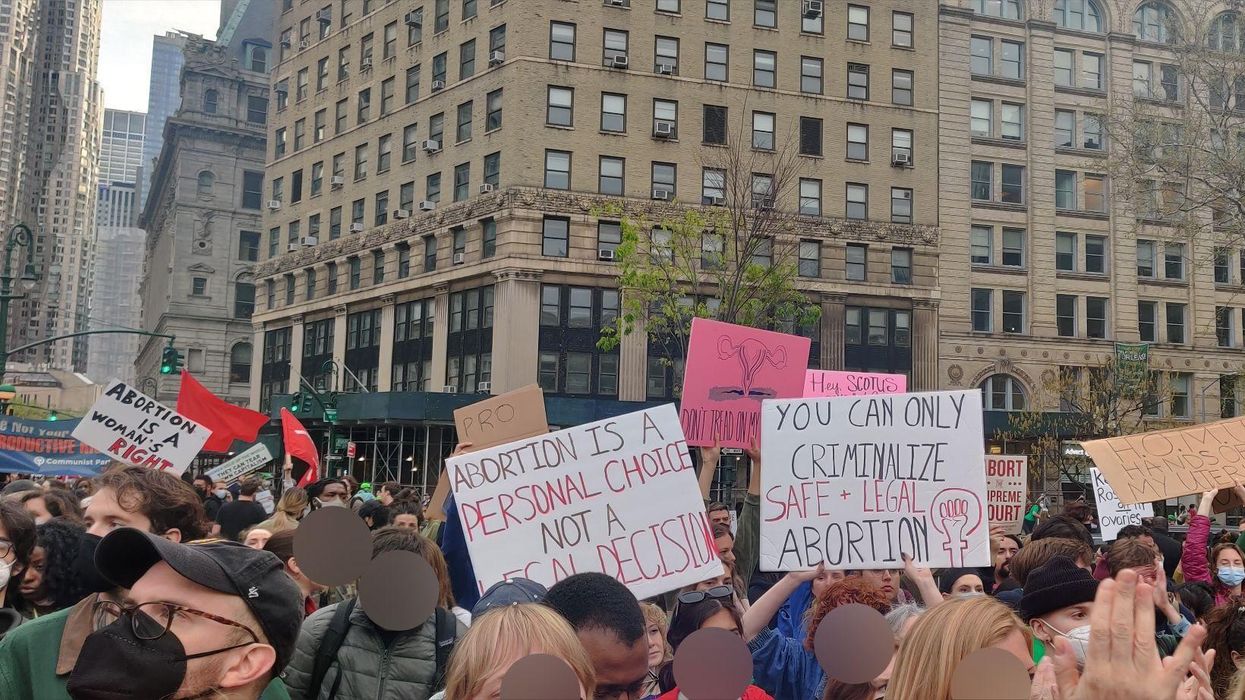How the Supreme Court’s ‘disastrous’ decisions are eroding ‘democratic governance’ itself: author

July 06, 2022 | 01:30PM ETBank

When former President Donald Trump replaced retired Justice Anthony Kennedy with Justice Brett Kavanaugh and the late Justice Ruth Bader Ginsburg with Justice Amy Coney Barrett on the U.S. Supreme Court, Trump’s critics expected the worst — and they were right to worry. No sooner had the radicalized High Court overturned Roe v. Wade than it undermined the Environmental Protection Agency’s (EPA) ability to fight climate change. And author Lawrence Douglas, in an op-ed published by The Guardian on July 6, fears that more “disastrous” decisions from the U.S. Supreme Court are on the horizon.
Douglas, who teaches at Amherst College in Massachusetts, is the author of the prophetic book “Will He Go?: Trump and the Looming Election Meltdown in 2020.” In his book, published in May 2020, Douglas predicted that Trump would cause considerable “mayhem” if he lost the 2020 presidential election — a prediction that proved to be painfully accurate. And in his Guardian op-ed, Douglas warns that the U.S. Supreme Court is attacking democratic governance itself while pretending to protect the U.S. Constitution.
“To paraphrase the great U.S. Supreme Court Justice Robert H. Jackson, the U.S. Constitution should not be read as a suicide pact,” Douglas writes. “That seemingly obvious bit of wisdom appears lost on the present Court. Over the course of the past week, the Court handed down three landmark decisions, each disastrous in its own right. But taken together, they reveal a dangerously hidebound Court intent on turning the Constitution into an instrument of obstruction — a formidable obstacle to solving some of the nation’s most pressing problems.”
The three rulings that Douglas is referring to are Dobbs v. Jackson Women’s Health Organization, which found the Court overturning Roe v. Wade after 49 years; New York State Rifle & Pistol Association v. Bruen, which struck down the “proper cause” element of a New York State gun control law going back to 1911; and West Virginia v. Environmental Protection Agency.
“What the Court giveth,” Douglas argues, “the Court also taketh away…. The Court brazenly eliminated a constitutional right that had stood for half a century. In its decision in Dobbs v Women’s Health, overturning Roe v. Wade, the Court demonstrated how inaptly the label ‘conservative’ applies to the present six-person majority. There is nothing conservative about a Court willing to upset established precedent and to radically purge the Constitution of a right that had been recognized and affirmed by numerous justices over the course of decades.”
Douglas adds, “Roe, for whatever its weaknesses, recognized that while states have an interest in protecting unborn life, women have a right to ‘bodily integrity’ and ‘personal autonomy in matters of family’ that includes the right to terminate a pregnancy. Roe demanded a delicate act of balancing the state’s interest against a woman’s right, a balance that the Court has now eliminated…. How a woman deals with an unwanted pregnancy is no longer an issue of personal choice; it is a matter of state control.”
Douglas warns that Justice Clarence Thomas, in Dobbs, called for the High Court to “reconsider” Lawrence v. Texas — a 2003 gay rights ruling that struck down a sodomy law in the Lone Star State. And Douglas fears the outcome of Moore v. Harper, which deals with a crackpot far-right legal theory known as the “independent state legislature doctrine.”
READ MORE: The Supreme Court’s nod to white Christian theocracy
“If all this were not bad enough,” Douglas explains, “the Court ended its present term by announcing that it had agreed to hear Moore v. Harper in the fall. It is widely feared that the case, which involves a North Carolina redistricting plan, will provide the Court’s reactionary core the opportunity to adopt the so-called ‘independent state legislature theory,’ a previously fringe notion that the Constitution gives state legislatures plenary control over elections, free from the oversight of state courts and regardless of contrary provisions in state constitutions.”
Douglas continues, “Adopting this dangerous theory could, for example, give legislators spouting the Big Lie in swing states the power to determine the outcome of a presidential election. Whatever theory we use to interpret the Constitution, it should not result in the destruction of the very form of democratic governance the constitution was designed to protect.”